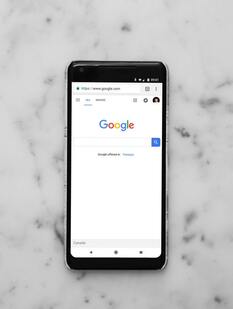 Photo by Joelle Nebbe-Mornod on Flickr Photo by Joelle Nebbe-Mornod on Flickr by Bryce Morris Since the summer of 2017, I have been writing my own social media reviews on Instagram based on pop culture topics such as film, television, comic books, and video games. Before I write my Instagram reviews, I avoid any other reviews or comments that may influence my opinion before I view the product myself. It can be difficult to prevent others from influencing my opinion. In favor of collective opinions expressed on Instagram, Twitter, and Facebook becoming the determinant, the sacred days of everyone having their own distinct opinion seem to be fading into the background. Social media sites have opened the floodgates for users to produce reviews and begin discussions of their own. Most social media users are so keen to have followers and an artificial sense of community that they will not hesitate to share misguided content. This can range widely, including news footage, articles, celebrity gossip, political prospects, and even reviews directed at several forms of media. Quite literally anyone, myself included, can go out and create a review with their smartphones or computers now, which is a scary ability that is already harming the world of entertainment. Everyone has a right to their own opinion, but when that single opinion actually stands in as the opinion of several others, then it becomes an issue within the world of creative expression.
0 Comments
by Angela Faustino  As someone who has dedicated her life to studying writing, I think a lot about what makes literature effective. There are the essentials of course, the rising and falling actions, a solid plot, conflict, a climax, and an end all resolution that concludes the story. I feel the most important thing that a story can give is a sense of other worldliness. When a piece is that good, it harnesses all of these elements, and leaves the reader with a sense of awe after its resolution. As an avid gamer, and someone who enjoys watching playthroughs of games, I often wonder: Why aren’t video games considered valid pieces of literature? by Christina Cullen  Image via Unsplash Image via Unsplash Last week my father asked me “What do the letters A.D. stand for?” as I racked my brain for the Latin Anno Domini and realized how little I had paid attention during my Catholic school days. He continued, “You know, when you search for something on Google, you sometimes see the letters A.D. What does that mean?” My father recently retired from a corporate job and started his own signage business. He is a master networker and can make personal connections in minutes, but for him the online realm is a new landscape. Despite being the first in our family to own a computer, smartphone, and tablet as well as the fact that Google Adwords, the world’s first “self-service advertising program” was launched in 2000, two decades passed before he realized these two tiny black letters at the top of a Google search are the abbreviation of advertisement.  by Dina Folgia When I was a child, I existed in a world ruled by print. If I wasn’t consuming media that had a front and back cover, chances are I wasn’t consuming it at all. I indulged in the occasional cartoon, maybe a movie or two every now and again, but by the time I was twelve my library of books far outweighed my library of DVDs. I was insatiable, unshakable, and I couldn’t picture myself growing up to craft anything besides literature. As I entered into my college experience and began to study writing as a possible career path, however, I was faced with a dilemma. After spending four years studying and dedicating myself to the craft, I began to grow complacent in the area of print media. It seemed like all my creative writing-based classes were teaching the same things, and that was based in creating publishable material and helping writers grow a thick enough skin to brave the cold, uncaring world of print writing. It wasn’t until I added on a media writing concentration and took several Radio, TV, and Film classes that I began to realize why I—and many of my peers—had grown so incredibly tired of print. by John Gross
Throughout time technology has changed how the writer crafts his novel. From pen and paper, to typewriters, to word processing—the tools of the trade are constantly evolving. In today’s world, the writer can craft a sentence and move it around to different places, supplementing paragraphs where he sees fit. This can be a powerful tool, that makes the revision process more fluid and dynamic. An author can be less committed to putting something on a page, where it can be easily reshaped, moved, and removed. While this technology has fundamentally changed how the novelist crafts his work, it hasn’t really changed how the reader consumes it. Sure, we are in a period of time that is showing the rise of e-readers and digital print, but ultimately the novel is being experienced in the same traditional way. |
Archives
July 2024
Categories
All
|
|
Glassworks is a publication of Rowan University's Master of Arts in Writing 260 Victoria Street • Glassboro, New Jersey 08028 [email protected] |
All Content on this Site (c) 2024 Glassworks
|

 RSS Feed
RSS Feed
